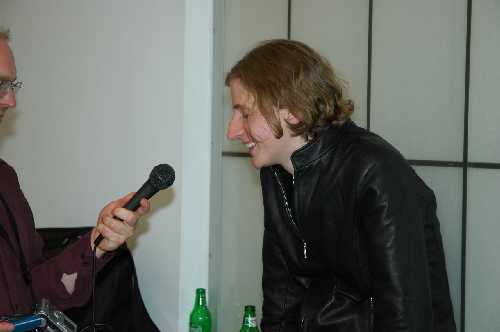We here at Return of the Reluctant take considerable pride in exposing the pressing issues of our time. This includes, of course, the very seminal subject of female orgasms. Interestingly enough, nobody had thought to determine if there was a biological basis for orgasms. Until now.
The answer is yes, indeedy, there is a genetic basis. The results will be published in the August 2005 issue of The American Society of Human Genetics (not yet available online).
But it’s not encouraging. Somewhere between 34-45% of the variation between the ability to orgasm and the inability to orgasm can be explained by heredity. Tim Spector of St. Thomas’ Hospital in London effected these results by using 1,397 pairs of twins, both identical and non-identical.
Criminally, one in three women said they never or infrequently had an orgasm. 14% always had an orgasm during intercourse. 34% always had an orgasm during masturbation.
The hypothesis going around is that the women who can’t obtain an orgasm are more likely to be born and thus the unlikely orgasm trait will be carried over. Why? Well, Spector speculates that women who orgasm too easily aren’t as skillful in selecting potent partners.
If that’s the case, does this mean that female partners who continually use birth control of some kind (or who have no children or fewer children) are more likely to have an orgasm? Raising a kid is certainly no picnic and I would speculate that the higher stress that mothers suffer is going to affect their ability to orgasm. But if there is a genetic predisposition (as Spector concludes)that truly prevents women from achieving orgasm, then at the risk of drawing the wrath of the multitudes here, I’m curious whether there’s a chromosomal corollary between the ability to orgasm and (a) wanting to have a child, (b) willingly placing one’s self continuously in stressful situations (i.e., not being able to relax enough to have an orgasm), and (c) being less inclined to use birth control.
For the men who hope to use this information as an excuse to cop out after ten minutes, I should remind them that sexual intercourse is an act that involves two people in which both are equally culpable or, obversely, equally compatible.

